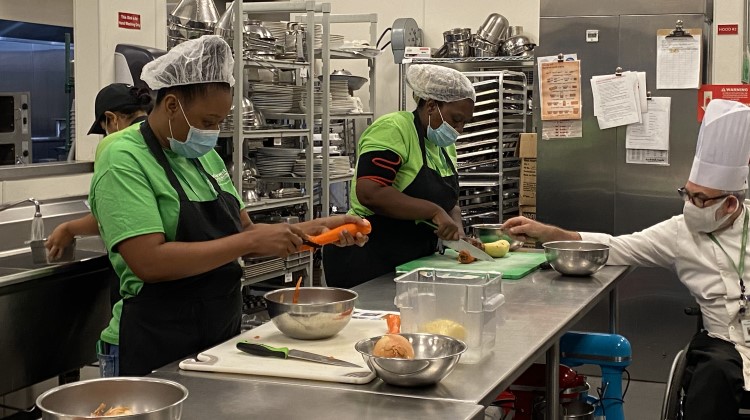
With nearly 10 million Americans actively looking for work, some employers face a surprising challenge: No one is applying for jobs. In small towns and sprawling metropolises alike, countless restaurants, hotels, construction sites and more are “now hiring” – with little to show for it.
It’s not a problem anyone expected to face in 2021. For the last year and more, our resounding mantra has been “getting back to work” – keeping people in jobs, limiting the damage caused by mass unemployment, and helping businesses return to normal operations. But no matter the reason, it’s clear that Florida needs a supply of trained workers to supplement foodservice and hospitality – two cornerstones of our economy.
It’s a serious problem … but one local nonprofit is committed to helping to find a solution.
While Second Harvest Food Bank of Central Florida has been serving double the usual number of distributed meals every day during the pandemic, the organization has also been working to “shorten the line” of people who need hunger relief through initiatives like its Culinary Training Program. The program, which was launched in 2013, combats financial insecurity — a root cause of hunger — by providing disadvantaged adults with a food service education that they can use to build skilled careers.
Consider Frank, a current student in the program. During the pandemic, he was furloughed from his job as a hotel bellhop — but he took it as an opportunity to grow and stay active, and enrolled in the Culinary Training Program. Frank says he views the program as a job, adding: “It’s easier to get a job when you already have one.”
Another student, Elvin, was in the middle of moving his family from Puerto Rico to Orlando when the pandemic hit. Suddenly furloughed from his position as a banquet manager, he decided it was time to expand his skillset through the Culinary Training Program. Elvin already has more than two decades of experience in front-of-house roles — and he’s confident that mastering back-of-house skills will make him a more adaptable and valuable employee.
Soon, Elvin, Frank, and their classmates will be getting back to work — with a host of new skills to add to their resume. In the last year alone, the Second Harvest program held three 16-week sessions and certified 44 graduates in culinary and professional skills. Since its inception in 2013, 373 students have graduated, and 91% of individuals who were experiencing homelessness upon graduation now have stable housing.
But students aren’t the only ones who benefit. In restaurants and hospitality businesses, skilled and dedicated employees are hard to come by at the moment … and, still recovering from the pandemic, it’s not easy to front the cost of hiring, turnover, in-house training or wage increases. For employers, the Culinary Training Program is a win-win.
“Second Harvest Food Bank of Central Florida has been an instrumental partner for us and provided our Orlando hotels with outstanding employees,” said Rosanna Maietta, president & CEO, AHLA Foundation. “As the hospitality industry recovers from the pandemic, Second Harvest will play a critical role in connecting job seekers with fulfilling, lifelong careers in the industry.”
More than a year after news of the pandemic broke, it’s clear that healing after COVID-19 isn’t as simple as “getting back to work.” We need long-term solutions, not short-term patches. Through proactive initiatives like the Culinary Training Program, we can create a pipeline of skilled workers who are equipped to build careers … and give businesses a chance to hire talented candidates.
Whether you’re a restaurant owner who hires one of our graduates, an event planner partnering with the program for catering or a donor to Second Harvest Food Bank, you’re helping to build a stronger community – not just today, but for the years to come.
Nancy Brumbaugh is the Vice President of Food Services for Second Harvest Food Bank of Central Florida.
373 graduates have found a new career in the foodservice industry.
Culinary Training Program students and graduates inspire us daily.


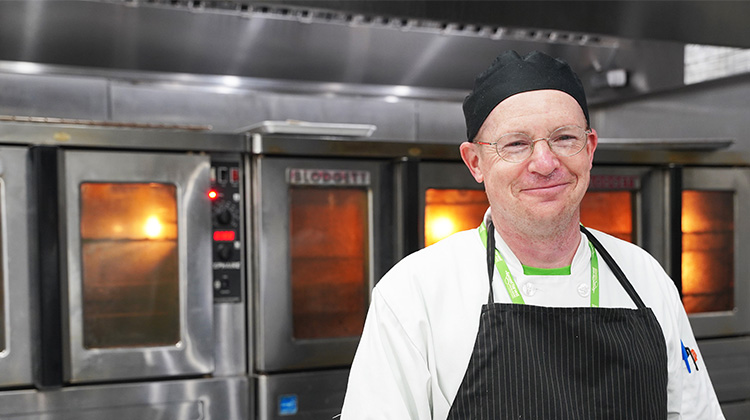
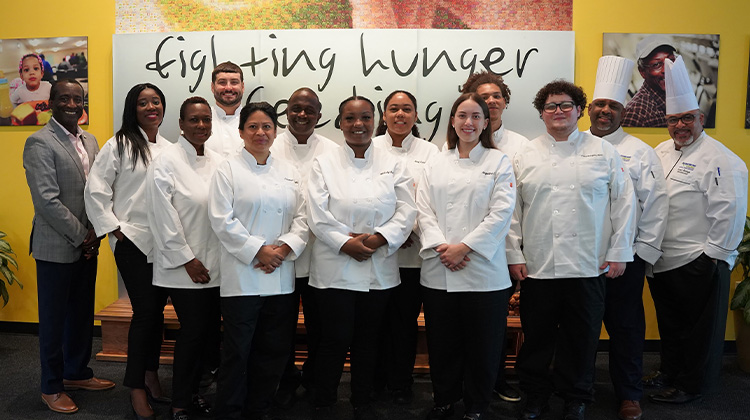
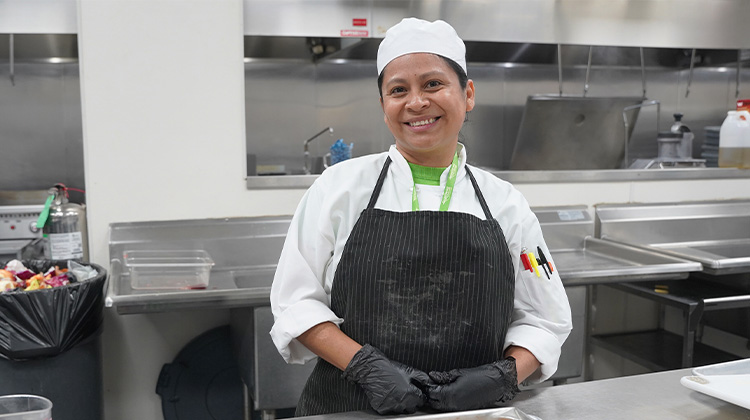


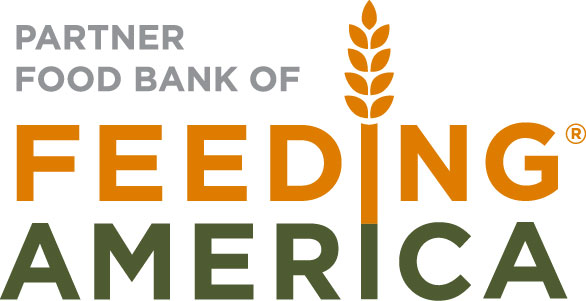
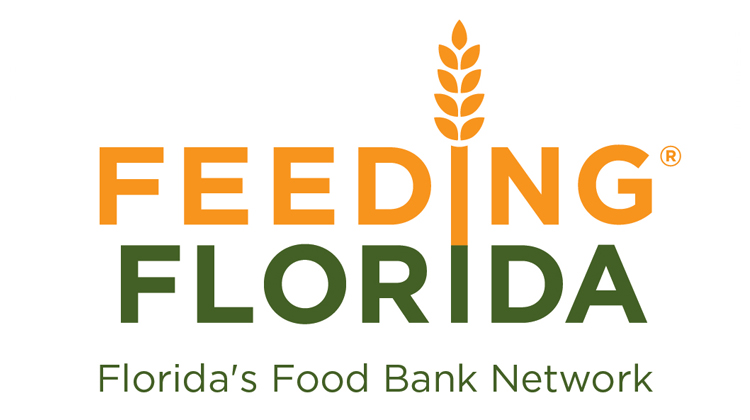
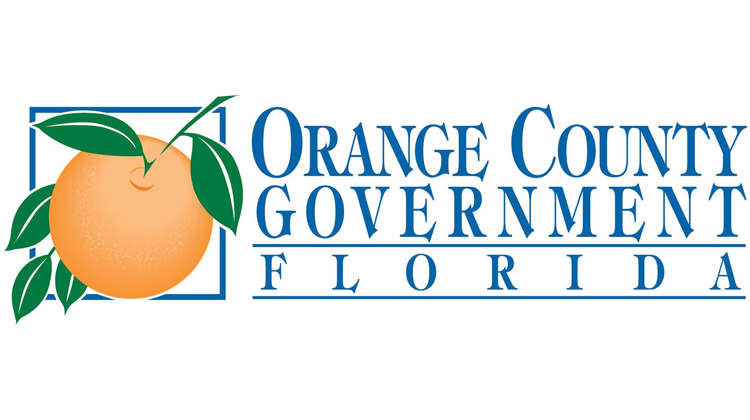
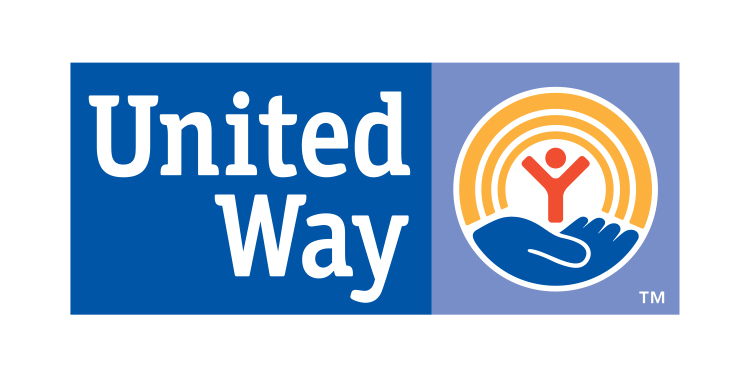

Leave a Reply